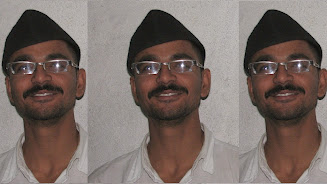Global Warming is happening faster than ever and yes we human being are responsible. The greenest House Gas is Carbon –dioxide releasing into the atmosphere. Many of the activities we do everyday rely on energy sources like coal and oil that emit carbon dioxide and other heat trapping gases. This is a major problem because global warming destabilizes the delicate balance that makes life on this planet possible. Increase of few degrees in temperature can threaten the lives of the millions of people around the world. To tackle the situation a movement 350 has been started to create awareness, educate and involve people in the action to prevent and control global warming and the allied climate changes. It is thought by doing so public voice is raised effectively and policy makers of the world would act swiftly.
The question is what does this 350 number mean? 350 is the number that scientist say is the safe upper limit for carbon dioxide measured in ‘Parts Per Million’ in our atmosphere. 350 PPM is the umber we need to get back to as soon as possible to avoid climate change. The earth is in its danger zone because we have poured too much carbon into the atmosphere and we are witnessing the symptoms of trouble. I.e. melting of ice glaciers, drought, flood etc. We need to scramble back as soon as we can to safety. If the global movement on Environment succeeds, we can get back the world on track to get back to 350 and back to climate safety. Getting back to 350 means transforming our world. It means building solar arrays instead of coal plants. It means planting trees instead of deforestation. It means increasing efficiency and decreasing our waste. Getting to 350 means developing a thousand different solutions to global warming. 350 is the most important number which contains recipe for a very different world; one that moves past cheap fossil fuel to more sensible technologies, more closely knit communities and a more equitable global society. 350 PPM CO2 is the upper limit if we wish to have a planet similar to one in which civilization develops and to which life on earth is adapted. This number is unrefuted; indeed a constant flow of additional evidence supports it from many directions. In 2009 Oceanographers reported that long term atmospheric levels above 350 PPM doomed coral reefs worldwide; the rapid and unexpected acidification of sea-water.
It is therefore no longer possible to defend higher targets as a bulwark against catastrophic change. Arguing for 350 is not making the perfect the enemy of the good. It is making the necessary the enemy of the convenient. Even if we do everything right it will take decades for the world’s oceans and forest to absorb the excess carbon we have already poured into the atmosphere.
Vishwajeet S Singh
Programme officer
PARYAVARAN PRATHAM Nagpur



